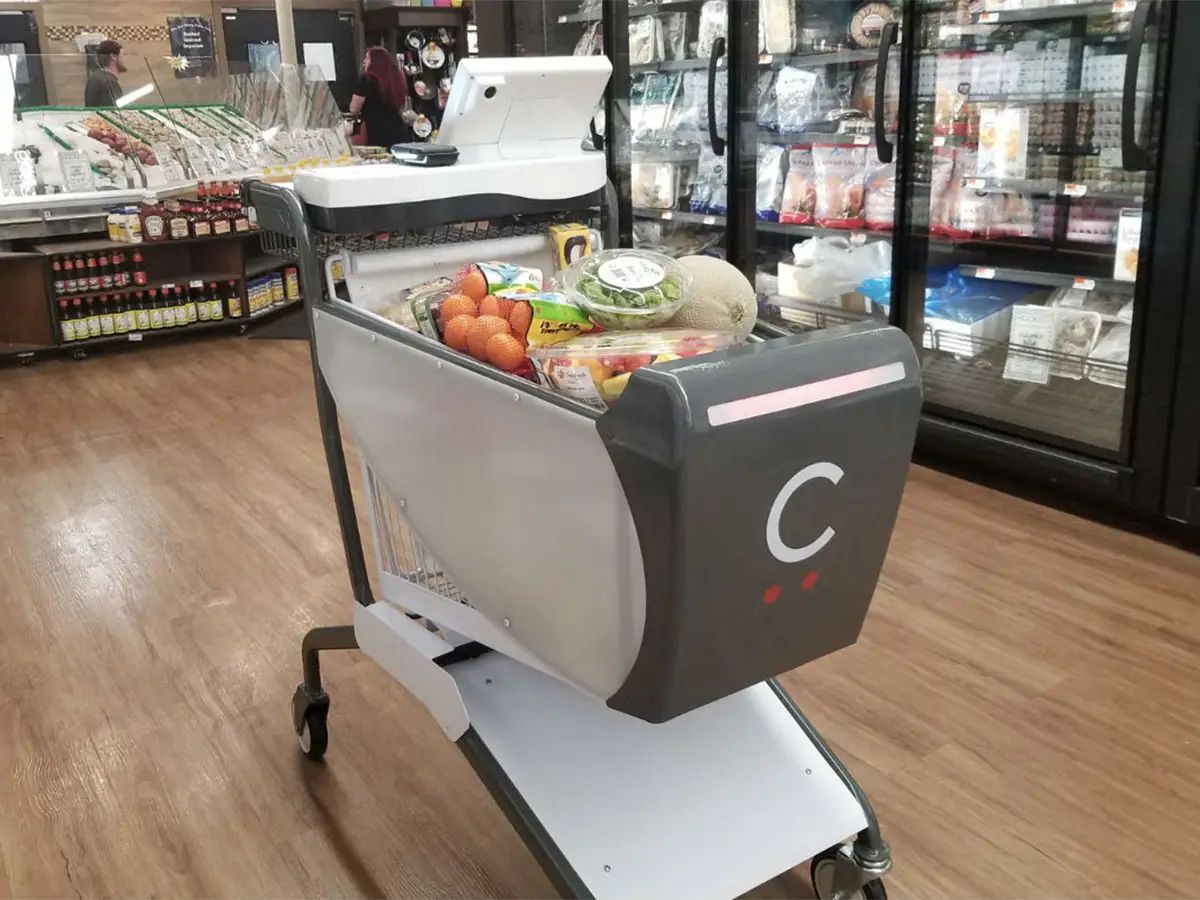Artificial Intelligence (AI) is rapidly transforming the landscape of online grocery shopping, offering unprecedented convenience and personalization to customers. AI customer support agents are at the forefront of this revolution, providing seamless assistance throughout the shopping journey. From enhancing order placement to delivering personalized product information and automating delivery processes, AI is reshaping the way consumers interact with online grocery stores. This article explores the multifaceted impact of AI on the online grocery shopping experience, highlighting the latest innovations and predicting future trends in the industry.
Key Takeaways
- AI customer support agents streamline the online grocery shopping experience, from order placement to delivery tracking.
- Walmart's vision for hands-free shopping and AI-powered replenishment services exemplifies the future of automated grocery purchases.
- Beyond customer support, AI is enhancing retail through chatbots, predictive algorithms, and customer-centric strategies.
- AI recommendation systems analyze user behavior to provide personalized shopping experiences and foster brand loyalty at scale.
- Operational efficiency in customer support is achieved through streamlined agent onboarding, real-time information retrieval, and sentiment analysis.
Revolutionizing Online Grocery Shopping with AI Support

Enhancing Order Placement and Tracking
The integration of AI into online grocery shopping platforms has significantly streamlined the order placement and tracking process. Customers can now enjoy a more intuitive shopping experience with features like conversational search, which allows the use of natural language to effortlessly find and add items to their cart. This advancement not only simplifies the search process but also reduces the time spent on order creation.
The seamless integration of AI tools into the customer journey has led to a more efficient and satisfying shopping experience, with a noticeable reduction in order placement errors and an increase in speed from cart to delivery.
Furthermore, AI-driven systems provide real-time updates on order status, giving customers peace of mind and control over their shopping experience. The ability to track orders with precision and receive timely notifications has become a cornerstone of customer satisfaction in the digital age.
Providing Personalized Product Information
In the realm of online grocery shopping, personalization is a game-changer. AI customer support agents are equipped to offer product information that is tailored to the individual preferences and dietary needs of each customer. This level of customization is achieved by analyzing past purchases, search history, and even dietary preferences to suggest items that align with the shopper's tastes and requirements.
- By leveraging customer data, AI can suggest new products that complement previous purchases.
- It can also alert customers to promotions and deals on items they frequently buy.
- For those with specific dietary restrictions, AI can filter and highlight products that meet their needs, ensuring a seamless shopping experience.
The integration of AI into online grocery platforms allows for a nuanced understanding of customer behavior, leading to highly personalized shopping journeys. This not only enhances the customer experience but also drives loyalty and repeat business.
Waitrose is the latest supermarket retailer in the UK to invest in artificial intelligence to create more personalized experiences for shoppers. This strategic move underscores the importance of personalization in retaining customers and staying competitive in the rapidly evolving grocery sector.
Automating Delivery Adjustments for Customer Convenience
The integration of AI in online grocery shopping has led to significant advancements in delivery logistics, enabling real-time adjustments to delivery schedules for enhanced customer convenience. This automation allows customers to modify their delivery times and locations with ease, adapting to their ever-changing schedules.
- Customers can now reschedule deliveries with a simple click, avoiding the hassle of manual coordination.
- AI systems track and predict traffic patterns, optimizing delivery routes for speed and efficiency.
- In the event of unexpected delays, AI can proactively inform customers and suggest alternative delivery options.
The goal is to provide a seamless and flexible delivery experience that aligns with the dynamic lifestyles of today's consumers. By leveraging AI, online grocery stores are not only meeting but exceeding customer expectations for service and convenience.
The Future of Grocery Shopping: AI-Driven Innovations

Walmart's Vision for Hands-Free Shopping
Walmart is at the forefront of integrating generative AI to redefine the grocery shopping experience. The retail giant is working towards a hands-free shopping future, where the mundane task of grocery replenishment is handled entirely by AI. This vision includes an AI-powered InHome replenishment service that not only learns from individual consumer habits but also leverages Walmart's vast understanding of shopping patterns to automate grocery orders.
The initiative is a bold step beyond Amazon's Subscribe-and-Save model, as it incorporates AI to predict and fulfill customer needs without any manual input. Walmart's approach could potentially lead to a paradigm shift in how we think about shopping for groceries—transforming it from a chore into a seamless, invisible process.
Walmart's generative AI applications are not just about keeping pace with competitors; they are about setting a new standard in retail innovation. The company's swift adoption and clever use of technology exemplify its commitment to staying ahead in the competitive landscape.
With the implementation of these AI systems, Walmart is not only enhancing customer service with features like voice shopping but is also challenging the status quo, positioning itself alongside tech giants in the race for retail supremacy.
AI-Powered Replenishment Services
The advent of AI-powered replenishment services is poised to redefine the convenience of online grocery shopping. Walmart, a major player in the retail space, is pioneering this innovation with its InHome replenishment service, which promises to automate the grocery shopping process. By leveraging AI, the service is designed to understand and predict customer preferences, ensuring that households never run out of essential items.
The goal is to create a seamless shopping experience where the replenishment of groceries is as effortless as possible, with minimal input from the consumer.
This service is not just about convenience; it's also about optimizing inventory management. AI systems can analyze demand patterns and user preferences to keep stock levels perfectly aligned with consumer needs, thus reducing stockouts and overstocking issues. Walmart's initiative is a significant step towards a future where grocery shopping requires minimal effort from the consumer, potentially surpassing competitors like Amazon's Subscribe-and-Save model.
Competing with Amazon's Subscribe-and-Save Model
In the race to dominate the online grocery shopping market, Walmart is positioning itself as a formidable competitor to Amazon's Subscribe-and-Save. Walmart's strategy hinges on leveraging AI to create a seamless, hands-free shopping experience that anticipates customer needs. The envisioned AI-powered InHome replenishment service is designed to automate grocery shopping by analyzing individual consumer habits alongside Walmart's vast data on shopping patterns. This service aims to ensure that customers always have a fully stocked fridge without the need for manual intervention.
While Amazon has made strides with its AI shopping assistant, allowing users to converse and find products effortlessly, Walmart's approach could potentially surpass Amazon by automating the entire process. The goal is not just to respond to customer needs but to proactively fulfill them before they arise. Walmart's initiative could redefine convenience in grocery shopping, setting a new standard for customer expectations.
Walmart's AI advancements signal a shift towards a more predictive and autonomous shopping experience, one that could challenge Amazon's current model and offer consumers an unprecedented level of convenience.
AI in Retail: Beyond Customer Support

Chatbots and Virtual Assistants
The integration of chatbots and AI assistants into the retail sector marks a significant leap towards more interactive and responsive customer service. These virtual agents are not just transforming the way customers interact with services, but also how businesses gather and analyze customer data. They are pivotal in providing a seamless, 24/7 support system that can handle a multitude of customer inquiries without human intervention.
The ability of chatbots and AI assistants to process and understand natural language has revolutionized customer interactions. They offer personalized support and can learn from each interaction, becoming more efficient over time.
To ensure these virtual assistants remain effective, continuous training is crucial. This involves:
- Regularly updating the AI's knowledge base with new information.
- Analyzing customer interactions to identify areas for improvement.
- Implementing feedback loops to refine the AI's conversational abilities.
Voice-based interactions are on the rise, with virtual assistants increasingly adopting this user-friendly mode of communication. This shift towards voice commands is set to make the customer experience even more intuitive and accessible.
Predictive Purchase Algorithms
Predictive purchase algorithms are at the forefront of AI's impact on retail, particularly in the online grocery sector. By analyzing past purchase data and customer interactions, these algorithms can forecast future buying behavior, enhancing the shopping experience. For instance, they can predict a customer's next purchase day, enabling retailers to tailor their marketing efforts more effectively.
- Cross-selling and Upselling: Algorithms identify associations between products to suggest related items, boosting sales.
- Dynamic Pricing and Discounts: Personalized pricing and promotions are generated based on demand, stock levels, and user preferences.
Predictive algorithms not only anticipate customer needs but also streamline inventory management and marketing strategies.
The integration of predictive analytics into customer service allows for preemptive solutions to potential issues, ensuring a seamless shopping journey. This proactive approach is a game-changer, leading to higher customer retention and satisfaction.
Data-Driven Customer-Centric Strategies
In the realm of online grocery shopping, data-driven customer-centric strategies are pivotal for retailers aiming to stay ahead of the curve. By harnessing the power of big data, companies can unlock a treasure trove of insights into customer behavior and preferences. This information is crucial for tailoring the shopping experience to individual needs, ultimately boosting sales and customer satisfaction.
- Collaborative strategies across teams and departments
- Leveraging cognitive computing for enhanced customer experiences
- Utilizing predictive analytics to anticipate customer needs
The key here is to generate data-driven insights rather than using gut feeling to truly enable you to understand your customers' behaviors and motivations.
By implementing a collaborative approach to customer centricity, businesses can ensure that every touchpoint in the customer journey is optimized for engagement and conversion. Cognitive computing and predictive analytics further elevate the customer experience by providing personalized recommendations and anticipating future needs, fostering a sense of trust and loyalty among shoppers.
Personalization at Scale: AI-Enhanced Shopping Experiences

Recommendation Algorithms and User Behavior Analysis
AI-driven recommendation algorithms have transformed the e-commerce landscape, enabling businesses to deliver personalized shopping experiences at scale. By understanding individual preferences, optimizing pricing strategies, and leveraging user-generated content, these algorithms enhance customer satisfaction, drive sales, and foster brand loyalty.
By considering the sentiment, feedback, and opinions expressed by customers, algorithms can make better recommendations and enhance the overall shopping experience.
Here are some key aspects of AI-driven recommendations in e-commerce:
- Personalized Product Recommendations: E-commerce recommendation systems analyze user behavior, purchase history, and browsing patterns to deliver personalized product recommendations.
- Cross-selling and Upselling: These algorithms identify patterns and associations between products, enabling cross-selling and upselling opportunities.
- Dynamic Pricing and Discounts: Recommendation systems can analyze pricing patterns and historical data to offer personalized discounts or dynamic pricing options.
Optimizing Pricing Strategies with AI
AI-driven recommendation algorithms are pivotal in optimizing pricing strategies for online grocery shopping. By analyzing historical data, demand, and stock levels, AI can implement dynamic pricing and personalized discounts. This not only maximizes customer satisfaction but also boosts sales by offering the right price at the right time.
- Dynamic Pricing: Adjust prices in real-time based on demand and supply.
- Personalized Discounts: Offer special deals based on customer's shopping patterns.
- Inventory Management: Align prices with stock levels to reduce overstock and stockouts.
AI's ability to predict and adjust to market conditions represents a significant advantage in the competitive online grocery sector. It ensures that customers receive value while retailers maintain profitability.
The table below illustrates how AI can impact various aspects of pricing:
By leveraging user-generated content and customer behavior, AI not only refines pricing strategies but also streamlines the customer journey, reducing friction points and enhancing the checkout process.
Fostering Brand Loyalty Through Personalization
In the competitive landscape of online grocery shopping, personalization is the cornerstone of customer loyalty. By leveraging AI, retailers can now offer a shopping experience that is tailored to the individual preferences and behaviors of each customer. This not only enhances the customer's experience but also encourages repeat business.
- Personalized Experience: Customers appreciate when their shopping experience feels unique to them. AI algorithms analyze purchase history and browsing behavior to suggest products that align with the customer's tastes.
- Tailored Communication: Using customer data to personalize interactions, such as addressing customers by name or referencing past purchases, makes communication more engaging and effective.
- Competitive Advantage: Delivering personalized experiences helps businesses stand out and fosters customer loyalty, turning occasional shoppers into brand advocates.
By integrating AI-driven personalization strategies, businesses can ensure that each customer feels valued and understood, leading to increased satisfaction and loyalty.
Operational Efficiency and Customer Satisfaction

Streamlining Onboarding for Customer Service Agents
The integration of AI into the onboarding process is making the journey smoother for new customer service agents, significantly reducing the time it takes for companies to bring their teams up to speed. AI-driven onboarding tools are not only expediting the training process but also enhancing the quality of training provided.
- Onboarding Assistance: AI systems can guide new agents through setting up accounts, understanding company protocols, and managing customer interactions.
- Real-time Information Retrieval: By accessing necessary databases, AI can provide agents with the information they need to assist customers effectively.
- Sentiment Analysis: AI tools can evaluate customer sentiment during interactions, offering insights into customer satisfaction levels.
The use of AI in onboarding is transforming how customer service agents are trained, ensuring they are better prepared to meet the demands of modern online grocery shopping experiences.
Real-Time Information Retrieval Capabilities
In the dynamic world of online grocery shopping, real-time information retrieval is a game-changer for customer support. AI customer support agents, equipped with the latest in data analytics, can provide prompt responses and real-time support, ensuring that customer queries are addressed with speed and accuracy. This capability not only enhances the shopping experience but also builds trust and shopper happiness.
The integration of AI with company databases allows for the immediate fetching of relevant data, which is crucial for agents to assist customers effectively. For instance, when a customer inquires about the availability of a specific product, the AI system can instantly access inventory levels and provide an accurate update.
- Real-time insights into customer behavior
- Quick adjustments to inventory based on sales data
- Streamlined operations through integration with CRM and CORE platforms
The ability to deliver real-time support and insights is reshaping the landscape of ecommerce AI, leading to enhanced online shopping experiences and retailer success.
Sentiment Analysis for Improved Customer Interactions
Sentiment analysis is becoming an indispensable tool in the realm of online customer support, particularly within the grocery sector. By evaluating the emotional tone behind customer feedback, AI can discern levels of satisfaction and pinpoint areas needing attention. This not only enhances the customer experience but also provides valuable insights for businesses to improve their services.
The integration of sentiment analysis into customer support systems allows for a more nuanced understanding of customer emotions, leading to more empathetic and effective interactions.
The application of sentiment analysis extends beyond mere problem-solving. It plays a crucial role in shaping the overall customer journey, from initial contact to post-purchase feedback. Here's how sentiment analysis is leveraged:
- Identifying customer moods from textual feedback, such as reviews or chat messages.
- Prioritizing customer issues based on the urgency conveyed through their sentiment.
- Tailoring responses to align with the customer's emotional state, ensuring a personalized touch.
- Tracking sentiment trends over time to inform strategic decisions and customer relationship management.
Conclusion
The integration of AI customer support agents in the online grocery shopping realm signifies a pivotal shift towards a more efficient, personalized, and satisfying customer experience. These intelligent systems, from chatbots to sophisticated recommendation algorithms, are not only streamlining the shopping process but also revolutionizing the way consumers interact with grocery brands. As companies like Walmart push the boundaries with AI-powered services, the prospect of a seamlessly automated grocery ecosystem is becoming a tangible reality. The transformative power of AI in enhancing customer support and satisfaction is clear, and as technology continues to evolve, the future of online grocery shopping is poised to be more intuitive and customer-centric than ever before.
Frequently Asked Questions
How do AI customer support agents enhance the online grocery shopping experience?
AI customer support agents assist with order placement, provide personalized product information, handle delivery tracking, and make adjustments for customer convenience, which streamlines the shopping process and enhances overall customer satisfaction.
What are some examples of AI innovations in grocery shopping?
Examples include smart virtual assistants, AI-powered replenishment services, and checkout-free shopping experiences. These innovations aim to make grocery shopping more efficient and personalized.
How is Walmart using AI to transform grocery shopping?
Walmart envisions a hands-free shopping experience where fridges automatically replenish themselves using AI-powered services. This could potentially outperform Amazon's Subscribe-and-Save model, as it leverages AI to predict and fulfill customer needs.
What role does AI play in creating a customer-centric shopping experience?
AI is used to deploy chatbots, predict future purchases, and gather data to understand customer preferences. This allows companies to offer a more personalized and efficient shopping experience, boosting sales and customer loyalty.
How do recommendation algorithms improve the e-commerce shopping experience?
AI-driven recommendation algorithms analyze user behavior, preferences, and purchase history to deliver personalized product suggestions. This enhances the shopping experience and drives sales by making relevant recommendations to customers.
What are the benefits of using AI for customer service in online grocery stores?
AI improves the onboarding process for new customer service agents, provides real-time information retrieval, and uses sentiment analysis to gauge customer satisfaction. This leads to more efficient customer support and better service quality.



